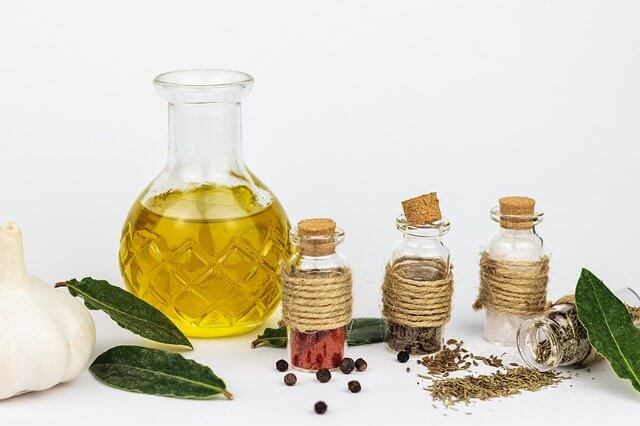Phytotherapy: 7 things to know about
Since ancient times, men have had the idea of using plants to heal themselves forming the concept of phytotherapy. The oldest texts testifying to this medicinal use were engraved on clay tablets. The side effects of drugs and resistance to antibiotics are now pushing research to return to the science of herbal medicine to develop alternatives to conventional treatments. Discover now 7 essential information to know before starting herbal medicine.
Definition: what is phytotherapy?

Phytotheray is herbal medicine, that is a natural and ancient medicine based on the use of plants. Herbal medicine is widely used in the world for its effectiveness and rare side effects. Used in a curative or preventive way, it is effective when it is well advised.
The word phytotherapy comes from the Greek phyton: plants and therapeia: to treat.
In this science, the active principles of plants are used to prevent or treat certain problems.
There are two main approaches to herbal medicine: the holistic approach focuses on the effects of the plant as a whole, on the well-being of the body in general.
Others are based more on biochemical knowledge. They are more concerned with the symptoms of diseases and the action of the active ingredients of plants.
Science at the service of phytotherapy
It is absolutely undeniable that plants have curative and preventive effects on many diseases and ailments.
On the other hand, research and development in herbal medicine is severely handicapped compared to the pharmaceutical industry because of funding problems and scientific difficulties in studying plants in detail and proving their efficacy for certain problems.
Fortunately, new rigorous research protocols that respect the particularities of plants are being developed.
In recent years, a few reviews and randomized clinical studies on herbal medicine have been published. The main diseases studied have been arthritis, cancer, Alzheimer’s and menopausal symptoms. The results show that herbal medicine, alone or in combination with conventional medicine, seems promising in the treatment of certain diseases.
One of the main advantages of commonly used herbal medicines is that they have little or no side effects. Moreover, the synergistic action of the various constituents is beginning to be better understood and accepted scientifically.
phytotherapy: he standard of a plant determines its effectiveness
The title or standard of a dry extract is the quantity of active molecule present in the plant. Any self-respecting manufacturer of food supplements is normally expected to always indicate the standard of the plant used.
For example: Dry extract standardized to 0.9% valerianic acid. The higher the title of the plant, the more measurable and statistically significant its effectiveness.
The difference between phytotherapy and aromatherapy

Phytotherapy and aromatherapy have the same origin, namely the plant. They are two sciences that are quite different in form, but not in substance. Phytotherapy uses the plant as it is while aromatherapy is the use of the hydrophobic part, in other words the oil obtained by hydrodistillation (the technique which allows the obtaining of an essential oil) of the plant.
Aromatherapy is based on the high concentration of active molecule, which explains why it requires only a few drops of essential oil for external or internal use.
While phytotherapy needs a few hundred milligrams to have its effects.
The main benefits of herbal medicine and phytotherapy
Phytotherapy “medicines help to meet the main health needs thanks to their effectiveness and their basic actions. For this, natural medicine acts in an effective, long-lasting and especially limited in / or without side effects. Because it does not target a single need at a specific time like conventional medicine (allopathy), but it contributes in general to the well-being of the body. (It should preferably be used over longer periods of time).
Modern research proves several therapeutic benefits of herbs on the health of the body:
- Adaptogenic – herbal medicine helps the body adapt to stress by normalizing body processes
- Nootropic – meaning they improve memory or other cognitive functions
- Immunomodulatory – meaning they alter the body’s immune response
- Antimicrobial – meaning they fight bacteria or fungi
- Antiviral
- Anti-inflammatory
- Antioxidant – meaning they stop the chemical reaction in the body that can produce free radicals + damage cells
With all of these properties, herbal medicine can effectively treat many common ailments including digestive problems, musculoskeletal pain, stress, anxiety, insomnia + fertility.
In summary, here are the main benefits of herbal medicines:
– Helps prevent some diseases
– Little or no side effects
– No addictive effect
– Fast acting
The form determines its use.
There are several ways to use herbal medicine:
- The standardized dry extract : the recovery of the active molecules by solvent and then evaporate it. You can find it mainly in capsules.
- The fluid extract : is like the dry extract except that the solvent is not evaporated. It is often used in cosmetics or syrups.
- The total powder : it is simply the grinding of the plant previously dried. You will find it mainly in capsules.
- The mother tincture : it consists in macerating the dry plant in ethanol. It is used in the form of drops to be diluted in water.
- Infusions : you simply put the plant in hot water for five to ten minutes and then remove it.
- The decoction : is like the infusions. The only difference is that in the decoction you first put the plant in cold water and heat it until it boils. Then the water is cooled and filtered.
Are all natural plants necessarily harmless?
Not everything that is “natural” is necessarily harmless. Some plants are simply toxic and others can be harmful when used in combination with other plants, medications or supplements. It is therefore very important to always seek the advice of a qualified herbalist.
In shorts …
Phytotherapy, as its name, is one of the types of natural care that allows to take advantage of the curative effects of medicinal plants.
As we have already explained above, the use of these plants brings several benefits to our body such as the fight against microbes and inflammations as well as viruses that can harm our health.
Now it’s your turn to tell us if you have ever used herbal medicine and in what form.
To Read: zinc: 5 foods that are rich of it
